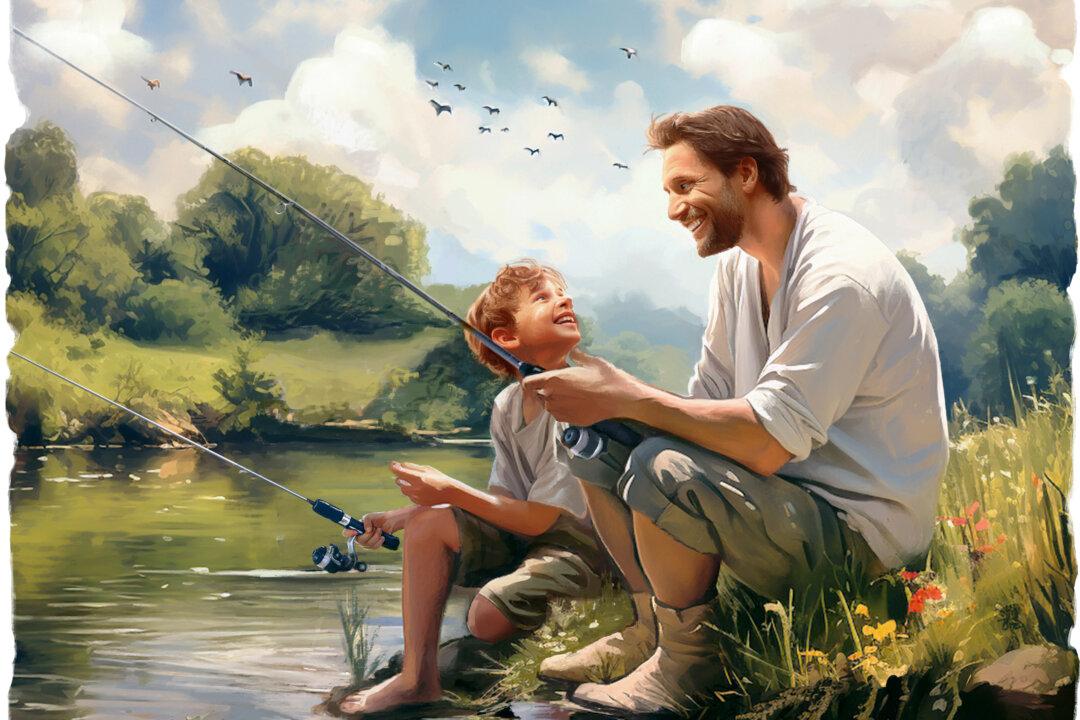The first time I went fly fishing with my father, I immediately hooked him through the finger. Neither of us knew what we were doing (obviously), and my first attempt at a cast ended with this minor bloodshed. We worked the hook out, after a bit, though, and no major damage was done.
We persevered with the fishing expedition—moving together unsteadily into this unknown realm of fly fishing, just as we waded forward into the cold, sun-striped, leaf-fringed, trout-haunted pools of the creek. We didn’t catch a single fish that outing. Or the next. Or the next.






